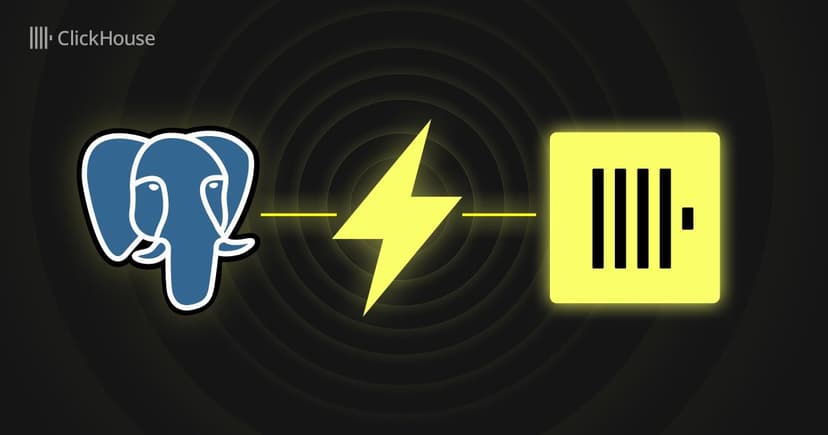International Women’s Day is today, March 8th, and ClickHouse is proud to reflect on this year’s theme of #BreakTheBias, which asks us to imagine _“a world free of bias, stereotypes, and discrimination … where difference is valued and celebrated.” _
We caught up Maria Zhang, an independent director on our board, and Caryn Marooney, the lead investor in our series B, to talk about their past experience with bias, how the trends are changing, and to look for practical tips that can help companies and teams form cultures of inclusion and belonging.
Ask any woman how far back their memories of bias go, and you’ll get some answers that extend deep into our histories: Caryn, for example, remembered being asked what it was like to study math and physics — subjects supposedly for boys — as a teenager. It struck her as odd then: as an attendee of an all girl’s school, who else, exactly, was going to take those classes? **“What a blessing,” Caryn told me: “to be confused by that question.” **
Maria shared a similar experience: **“It took a lot of courage for me to join the math club, because there were a lot of boys there, so even for myself, it was important to break that stereotype and pursue that passion.” **
These messages we get at an early age, whether it be the kinds of toys we play with as children or the kinds of clubs we feel belonging in, are formative, and both Maria and Caryn could remember how the dissonance stretched into their early careers: Caryn recalled secretary desks sitting outside of men’s offices in some traditionalist firms; and Maria said that when she started her career in Silicon Valley, it was **“very much was that bro culture, and it might sound funny how I dealt with it: I just wanted to act like a dude, so I didn’t feel like I stood out, because I often was the only woman on the team.” **
But the trend is changing. And both women had powerful observations for how to keep bias in check internally to support women in the workplace. **“Women tend to do the work and also the work around the work,” **Caryn told me, when we caught up back in February. These tiny biases and microaggressions add up, and sometimes slip through unnoticed in our teams. “Who takes the notes?” She wondered, and I reflected on how many offsites I or others — always women — spent looking after food and beverages or cleaning up, mostly because it’s the right thing to do, and hospitable, and partly because the truth is that labor is sometimes invisible, and as women know well: someone has to do it.
Caryn noted that these behaviors also carry into online spaces and our distributed workforces, where she offered some practical tips: “rotate these responsibilities,” Caryn said, of the work-around-the-work. **“Change who takes notes. Pay attention to who’s not talking.” **
**“Sometimes, you need to ask that question that’s not comfortable,” **Maria advised. **“When we talk about an individual’s performance, or career trajectory, and they say _oh, she’s not technical, _I always ask again, to say: _where is she not technical. _Women leaders are as technical as male leaders, but there’s just that preconceived notion.” **She also strongly advocated for unconscious bias training and on developing tracking mechanisms to drive visibility and awareness around inclusion.
We are in an era when many boards and executives are facing increased pressure to diversify their teams, the benefits of which have been established by multiple studies, and which Caryn echoed, but she insisted there’s a way for companies to think about this differently. “**Look for the skills you need first,” **she said, whether for a board or at a company. Focus on the job, the needs. **“Then, be willing to slow down. You may have to interview more people, but you will find the skills.” **This approach to hiring — skills-based, instead of credential-based — is becoming increasingly popular as a way for companies to not only increase their hiring speed, but also open the door for folks from a variety of backgrounds.
Maria and I spoke about the pressure of the traditions of caretaking, usually carried by women, and the impact of the COVID-19 pandemic on so many women who may have needed to take a pause to support their families. **“I take pride in being the caretaker,” **Maria said: **“Ideally you want to have a fulfilled personal life, take care of your loved ones, and not give up your career. I supported a return to work program at LinkedIn for women wondering: have I still got it,” **and smiled broadly when she reported: **“They were as brilliant as they ever were.” **
Being a mother made her wiser, she said, a better and more capable leader: **“So go back to your employers, go back to the workforce. You’re stronger today than you were. So Embrace yourself in all these facets. When I was pretending to be someone else,” **Maria concluded, reflecting on where we’d started — those biases from all the years before — “I was so unhappy. And when I forgot about all the pretending, that was the turning point of my career. I released those burdens, could relate to others better, and did my most creative work building the software I love to create.”



